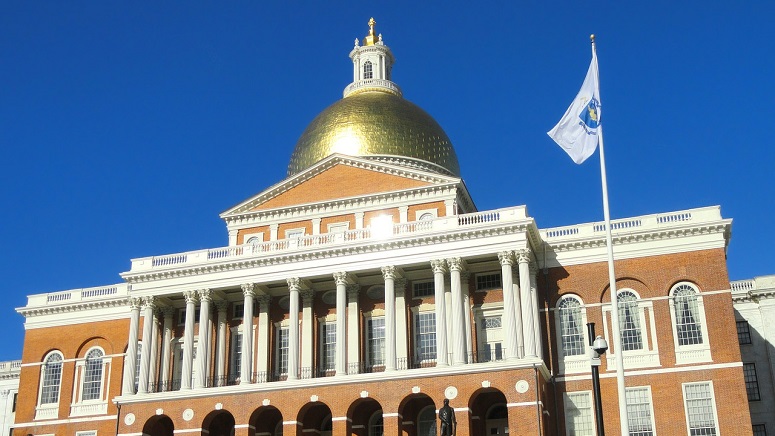BOSTON (AP) — The highest court in Massachusetts ruled Wednesday that the wording of a summary of a ballot question for a proposed “millionaire tax” constitutional amendment is legal and the measure can go before voters in November.
The amendment, if passed, would impose a 4% surtax on the portion of an individual’s annual income that exceeds $1 million. The question was challenged by a business group, some lawmakers, and other voters who said the attorney general-approved summary of the question is “completely misleading” because it said revenues raised by the surtax would be spent on education and transportation.
The Supreme Judicial Court in its decision said the question summary and one-sentence statement — both of which appear on the ballot — describing the effects of a “yes” vote are in compliance with the state constitution.
“The proposed amendment does not address how the Legislature may spend monies other than those raised by the amendment,” the court ruled. “Consequently, the Attorney General’s summary need not opine on whether, as plaintiffs contend, monies that historically have been spent on education and transportation could, at some future point, be spent elsewhere. The summary need only describe the amendment itself; we hold that it does so fairly, in compliance” with the state constitution.
Supporters have said the measure could generate about $1.9 billion in annual revenue.
The group pushing the proposed amendment welcomed the ruling.
“This decision is a victory for everyone who wants Massachusetts to be a place where the very rich pay their fair share to make our schools great and our roads and transit safe and efficient,” Fair Share for Massachusetts campaign spokesperson Steve Crawford said. “The ballot’s simple language accurately describes what the Fair Share Amendment will do.”
Critics of the proposed amendment said they fear voters won’t fully understand what they’re voting for.
“We’re disappointed in the court’s decision not to clarify the language that goes on the ballot to prevent voters from being misled into thinking that a vote for the amendment would result in increased spending on education and transportation,” said Chris Anderson, of the President Mass. High Technology Council.
The state’s constitution currently requires all income be taxed at uniform rates. The $1 million threshold would be adjusted each year to reflect cost-of-living increases.
The proposed amendment reads in part: “To provide the resources for quality public education and affordable public colleges and universities, and for the repair and maintenance of roads, bridges and public transportation, all revenues received in accordance with this paragraph shall be expended, subject to appropriation, only for these purposes.”
Critics are focused on the phrase “subject to appropriation.”
The Massachusetts High Technology Council said it fears the summary of the question and a one-sentence statement about the effect of a yes vote could lead voters to believe the money could only be spent on education and transportation.
Instead the money is “subject to appropriation” by lawmakers, meaning there’s no guarantee, critics said.
Those filing the lawsuit say the yes vote sentence should instead read:
“A YES VOTE would amend the state Constitution to impose an additional 4% tax on that portion of incomes over one million dollars to be used, subject to appropriation by the state Legislature, on education and transportation, though the Legislature could choose to reduce funding on education and transportation from other sources and replace it with the new surtax revenue because the proposed amendment does not require otherwise.”
In a court hearing earlier this year, an attorney representing Attorney General Maura Healey’s office argued that language would be confusing and potentially misleading to voters. Healey, a Democrat, is running for governor.
The proposed amendment is being pushed by a coalition of labor unions, community organizations and religious groups.
A similar effort to raise taxes was knocked off the 2018 ballot after a legal challenge by several business-backed organizations.
The Supreme Judicial Court threw out that version of the millionaire tax, ruling it violated restrictions placed on citizen initiatives by combining taxes and multiple spending proposals in a single ballot question.
The current proposal — though identically worded — was initiated by legislators rather than voter petitions, allowing it to bypass those restrictions.
(Copyright (c) 2024 The Associated Press. All Rights Reserved. This material may not be published, broadcast, rewritten, or redistributed.)

